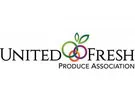The House Agriculture Committee held a hearing on the challenges facing the entire agricultural supply chain. As part of the hearing, a joint statement representing North American fresh produce organizations urging immediate government action to address significant ongoing supply chain disruptions with impacts to food systems, economies, and ultimately individuals and families worldwide, was submitted for the record.
The statement notes that almost two years since the start of the Covid-19 global pandemic, there have been substantial increases in costs and delays along the supply chain, threatening food security and the long-term economic viability of the North American fresh produce sector.
Examples of ongoing supply chain disruptions described in the statement include crippling port congestion, delays and exploding costs in container shipping, cascading effects of inconsistent product delivery, continuing labor shortages across the supply chain, growing input shortages, and stockpiling of products by consumers.
In addition, Jon Schwalls, executive officer of Southern Valley Fruit and Vegetable, Inc. (Norman Park, GA), testified during the hearing about the challenges specific to the fresh produce industry.
In October, United Fresh joined more than 50 organizations to submit comments to the Administration’s Supply Chain Disruptions Task Force in response to the U.S. Department of Transportation’s (USDOT) request for information that will be used to prepare a report for President Biden on supply chains for the industrial base. The comments offered recommendations to help ensure resiliency of the food and agricultural supply chain by addressing issues including labor, climate policy, transportation policy and infrastructure, container shipping, inland waterways, rail competition and service, and motor carrier freight transportation efficiency.
As part of the ongoing efforts to help restore certainty to the fresh produce supply chain, United Fresh has continued to urge Congress for relief and reforms to address many of the issues identified by the industry. "First and foremost, United Fresh urges Congress to pass the bipartisan infrastructure plan which will provide some immediate, much-needed infrastructure resources to roads, bridges, waterways, and western water infrastructure investment. Additionally, we call on Congress to consider the DRIVE Safe Act, which directs the Department of Transportation to promulgate regulations to implement an apprenticeship program for licensed commercial motor vehicle drivers under the age of 21. Finally, Congress should immediately take up the Ocean Shipping Reform Act of 2021, which would establish reciprocal trade to promote U.S. exports as part of the Federal Maritime Commission’s (FMC) mission and require ocean carriers to adhere to minimum service standards that meet the public interest, reflecting best practices in the global shipping industry, among other key actions. These measures would provide important tools to address some of the critical supply chain challenges facing the fresh produce industry."
 For more information:
For more information:
Ben Massoud
United Fresh
Tel: +1 (202) 303-3404
[email protected]
www.unitedfresh.org
